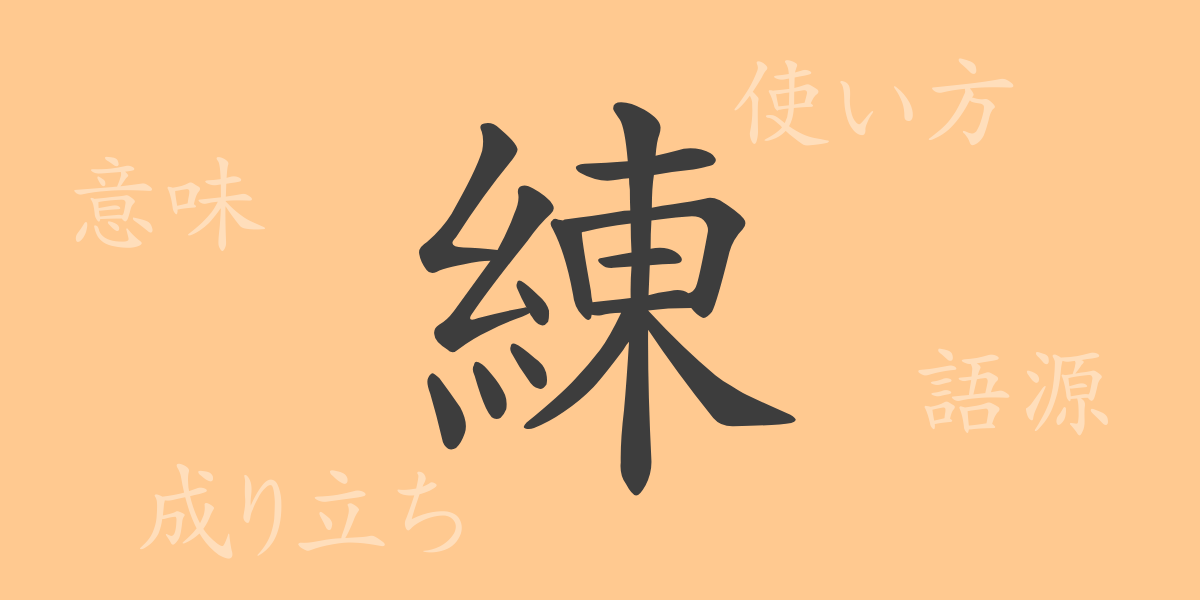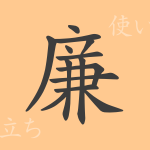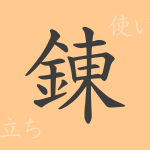The rich expressiveness of the Japanese language is greatly influenced by the presence of kanji (Chinese characters). Among these, the kanji “練” (ren) is used in various aspects of daily life, learning, and work, and is closely related to our efforts and growth. In this article, we delve into the charm of “練” (ren), exploring its origin, meaning, usage, and various idioms and proverbs associated with it.
The Origin of 練 (ren)
The kanji “練” (ren) originated in ancient China as a word representing the silk-making process. This character is composed of the “糸” (ito, meaning “thread”) radical and “東” (tou, meaning “repetition”). From the act of repeatedly winding and refining thread, the meaning of “to knead” emerged, forming the concept of refining and improving things through repetition.
Meaning and Usage of 練 (ren)
“練” (ren) carries meanings such as “to repeat,” “to refine,” and “to polish.” It is used in various contexts, such as “kneading” in cooking, “practice” in sports, and “refinement” in work. Additionally, expressions like “練達” (rentatsu, meaning “proficiency”) and “練達者” (rentatsusha, meaning “expert”) signify deep practice and mastery in a skill or technique.
Reading, Stroke Count, and Radical of 練 (ren)
“練” (ren) has multiple readings in Japanese.
- Readings: On’yomi (音読み) as “レン” (ren), Kun’yomi (訓読み) as “ねる” (neru) and “ねり” (neri)
- Stroke Count: 14 strokes in total
- Radical: 糸部 (itohen, meaning “thread”)
Idioms, Phrases, and Proverbs Using 練 (ren) and Their Meanings
There are numerous idioms, phrases, and proverbs in Japanese that include “練” (ren). For example, “練習” (renshuu, meaning “practice”) refers to the act of repeating something to improve, and “練達” (rentatsu) indicates a state of highly refined skills or knowledge. The expression “練りに練った計画” (neri ni netta keikaku) means a well-thought-out plan, and “練馬” (Nerima) is a place name in Tokyo, derived from the historical practice of refining thread in that area.
Summary of 練 (ren)
The meaning embedded in a single kanji is profound, making it an integral part of our lives. The meanings and uses of “練” (ren) go beyond mere repetition, signifying the value of refinement and skill enhancement gained through the process. Widely used in everyday conversation to specialized contexts, “練” (ren) reflects the spirit and culture of the Japanese people.

























